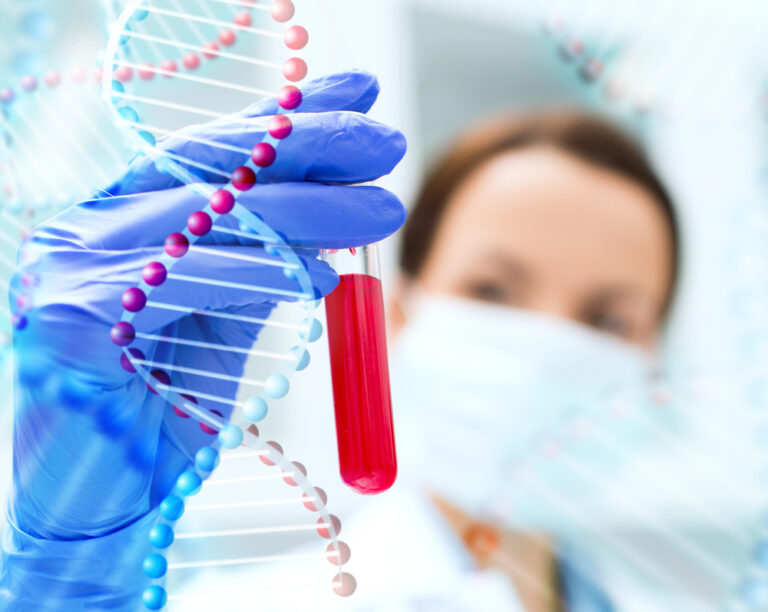Our HBD Lab

Affordable Labs
Our own in-house Laboratory Service
At HBD Labs, we believe blood work does not need to be expensive with OR without insurance! Our upfront pricing means there are no sneaky bills sent to you by insurance companies. The list below shows our pricing for the most common labs ordered. Pricing at your local office may be even lower!
HBD Labs
Available Labs
Amylase
$15
Amylase is an enzyme, or special protein, produced by your pancreas and salivary glands. … An amylase blood test can determine whether you have a disease of the pancreas by measuring the amount of amylase in your body. You may have a disorder affecting the pancreas if your levels of amylase are too low or too high.
ANA (Anti-Nuclear AB) with Reflex Titer
$15
The antinuclear antibody (ANA) test is used as a primary test to help evaluate a person for autoimmune disorders that affect many tissues and organs throughout the body (systemic) and is most often used as one of the tests to help diagnose systemic lupus erythematosus (SLE)
Blood Group (ABO) and RH Type
$15
Possible ABO blood groups include O, A, B, or AB. The Rh antigen is another compound that may or may not be present on the surface of red blood cells. The Rh test determines whether this configuration is present (“Rh-positive“) or absent (“Rh-negative“) on an individual’s blood cells
C-Reactive Protein
$25
The level of C-reactive protein (CRP), which can be measured in your blood, increases when there’s inflammation in your body. Your doctor might check your C-reactive protein level for infections or for other medical conditions
Cancer Antigen 125
$50
A CA 125 test measures the amount of the protein CA 125 (cancer antigen 125) in your blood. A CA 125 test may be used to monitor certain cancers during and after treatment. In some cases, a CA 125 test may be used to look for early signs of ovarian cancer in people with a very high risk of the disease.
CBC
$15
A complete blood count (CBC) is a blood test used to evaluate your overall health and detect a wide range of disorders, including anemia, infection and leukemia.
CEA
$40
Image result for CEA test A carcinoembryonic antigen (CEA) test is a blood test used to help diagnose and manage certain types of cancers. The CEA test is used especially for cancers of the large intestine and rectum. You doctor can also use the test results to help determine if a cancer treatment is working
CMP
$15
The comprehensive metabolic panel (CMP) is a blood test that gives doctors information about the body’s fluid balance, levels of electrolytes like sodium and potassium, and how well the kidneys and liver are working
DHEA Sulfate
$25
DHEA stands for dehydroepiandrosterone. It is a weak male hormone (androgen) produced by the adrenal glands in both men and women. The DHEA-sulfate test measures the amount of DHEA-sulfate in the blood
Estradiol
$15
An estradiol test measures the amount of the hormone estradiol in your blood. It’s also called an E2 test. Estradiol is a form of the hormone estrogen
Ferritin
$15
The ferritin test is a simple blood test. High levels of ferritin can indicate an iron storage disorder, such as hemochromatosis, or a chronic disease process. Low levels of ferritin are indicative of iron deficiency, which causes anemia (a reduction in the number of red blood cells)
Folate
$25
Vitamin B12 and folate tests measure vitamin levels in the liquid portion of the blood (serum or plasma) to detect deficiencies. Sometimes the amount of folate inside red blood cells may also be measured. … A deficiency in either B12 or folate can lead to macrocytic anemia, where red blood cells are larger than normal
follicle-stimulating hormone (FSH)
$25
Sometimes, elevated follicle-stimulating hormone (FSH) levels are measured to confirm menopause. When a woman’s FSH blood level is consistently elevated to 30 mIU/mL or higher, and she has not had a menstrual period for a year, it is generally accepted that she has reached menopause.
Free T3
$15
Triiodothyronine (T3) is one of two major hormones produced by the thyroid gland, a small butterfly-shaped organ that lies flat across the windpipe at the base of the throat. The other major thyroid hormone is called thyroxine (T4) and together they help control the rate at which the body uses energy. Almost all of the T3 (and T4) found in the blood is bound to protein. The rest is free (unbound) and is the biologically active form of the hormone. Tests can measure the amount of free T3 or the total T3 (bound plus unbound) in the blood.
Free T4
$15
Thyroxine (T4) is one of two major hormones produced by the thyroid gland, a small butterfly-shaped organ that lies flat across the windpipe at the base of the throat. The other major thyroid hormone is called triiodothyronine (T3) and together they help control the rate at which the body uses energy. Almost all of the T4 (and T3) found in the blood is bound to protein. The rest is free (unbound) and is the biologically active form of the hormone. This test measures the amount of free T4 in the blood.
HgA1c
$15
The A1C test measures what percentage of your hemoglobin — a protein in red blood cells that carries oxygen — is coated with sugar (glycated). The higher your A1C level, the poorer your blood sugar control and the higher your risk of diabetes complications
Homocysteine
$40
The homocysteine test is often used to evaluate those with malnutrition or folate/vitamin B12 deficiencies. It is also used to monitor those with a history of heart disease or cardiac issues.
hs-CRP
hs-CRP (high-sensitivity C-reactive protein)
$50
C-reactive protein (CRP) is a protein that the liver makes when there is inflammation in the body. It’s also called a marker of inflammation, and can be measured with an hs-CRP (high-sensitivity C-reactive protein) test, sometimes also called a CRP test. Excessive inflammation has been linked to heart disease
Insulin
$15
Insulin is a hormone that is produced and stored in the beta cells of the pancreas. It is secreted in response to elevated blood glucose following a meal and is vital for the transportation and storage of glucose, the body’s main source of energy. Insulin helps transport glucose from the blood to within cells, thus helping regulate blood glucose levels, and has a role in lipid metabolism. This test measures the amount of insulin in the blood
Insulin Free and Total
$40
Insulin is found in your body in many forms. Bound insulin is attached to other proteins. This often happens in people with diabetes who are treated with insulin. Free insulin is not attached to other proteins. Total insulin measures both free and bound insulin
Iron
$25
Iron tests evaluate the amount of iron in the body by measuring several substances in the blood. These tests are often ordered at the same time and the results interpreted together to help diagnose and/or monitor iron deficiency or iron overload
Lipase
$15
Lipase is one of several enzymes produced by the pancreas to help digest dietary fats. This test measures the amount of lipase in the blood
Lipid Panel
$15
Lipids are a group of fats and fat-like substances that are important constituents of cells and sources of energy. A lipid panel measures the level of specific lipids in the blood.
Liver (Hepatic) Function Panel
$15
A liver panel is a group of tests that are performed together to detect, evaluate, and monitor liver disease or damage
Luteinizing Hormone
$15
GnRH is the hormone produced by the hypothalamus that stimulates the pituitary to release LH and FSH. For this test, a baseline blood sample is drawn and then the person is given an injection of GnRH
Magnesium
$15
Magnesium testing may be ordered as a follow up to chronically low blood levels of calcium and potassium. It also may be ordered when a person has symptoms that may be due to a magnesium deficiency, such as muscle weakness, twitching, cramping, confusion, cardiac arrhythmias, and seizures
Mononucleosis Screen
$25
The mononucleosis test is used to help determine whether a person with symptoms has infectious mononucleosis (mono). The test is used to detect proteins in the blood called heterophile antibodies that are produced by the immune system in response to an Epstein-Barr virus (EBV) infection, the most common cause of mono
Pregnenolone
$95
This Pregnenolone Blood Test measures Pregnenolone levels in the blood. Pregnenolone is used by the body in the production of all steroid hormones such as estrogen, progesterone, cortisol and testosterone. Pregnenolone is typically tested to aid in diagnosing a condition known as Congenital Adrenal Hyperplasia (CAH)
Progesterone
$15
Progesterone is a steroid hormone whose main role is to help prepare a woman’s body for pregnancy. It works in conjunction with several other female hormones. This test measures the level of progesterone in the blood
PSA Free and Total
$50
Prostate specific antigen (PSA) is a protein produced primarily by cells in the prostate, a small gland that encircles the urethra in males and produces a fluid that makes up part of semen. Most of the PSA that the prostate produces is released into this fluid, but small amounts of it are also released into the bloodstream. This test measures the amount of PSA in the blood.
PTH
$85
Parathyroid hormone (PTH) helps the body maintain stable levels of calcium in the blood. It is part of a feedback loop that includes calcium, PTH, vitamin D, and, to some extent, phosphorus (phosphate) and magnesium. Conditions and diseases that disrupt this feedback loop can cause inappropriate elevations or decreases in calcium and PTH levels and lead to symptoms of hypercalcemia or hypocalcemia. This test measures the amount of PTH in the blood
Reverse T3
$83
sedimentation rate
$15
Testosterone
$25
Testosterone with SHBG
$40
Thryrogobulin AB
$50
The TgAb test checks for the presence of thyroglobulin antibodies which can detect the presence of an autoimmune disease that targets the thyroid or other damage to the thyroid.
Thyroid Peroxidase AB (TPO)
$25
TSH
$15
Urinalysis
$15
Vitamin D3
$40
Vitamin D is a family of compounds that is essential for the proper growth and formation of teeth and bones. This test measures the level of vitamin D in the blood.
Waco Lab
- 1201 Hewitt Drive Suite 204 B Waco, TX 76712
- Lab Phone: 254-230-4758
- davis@hormonesbydesign.com
-
HOURS: Mon: 8:00 AM – 3:30 PM,
Tues - Thurs: 6:40 AM – 3:30 PM,
Fri: 8:00 AM – 12:00 PM

